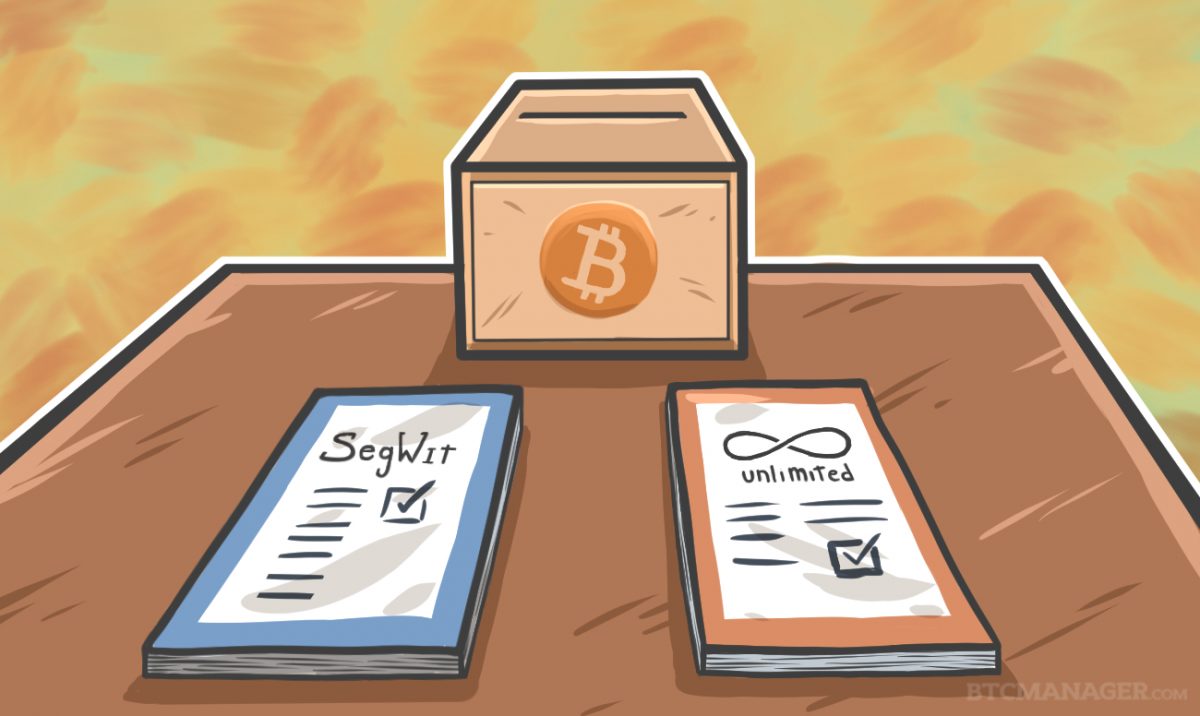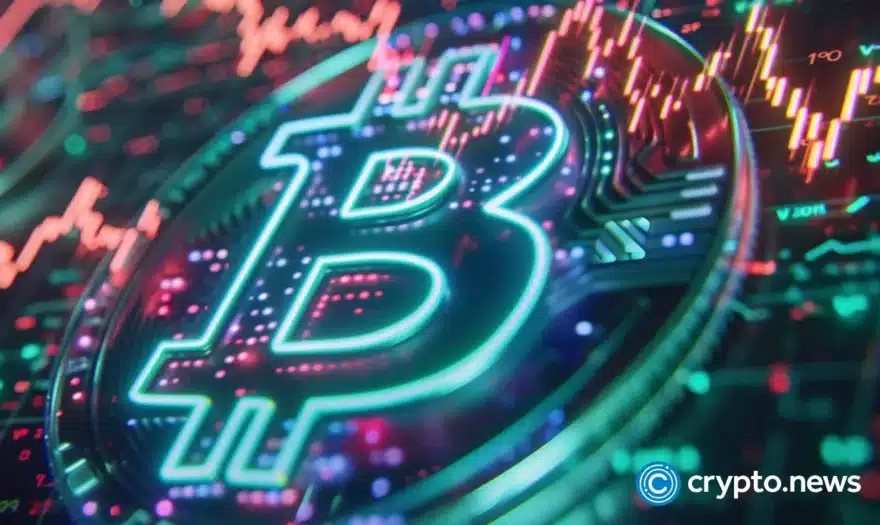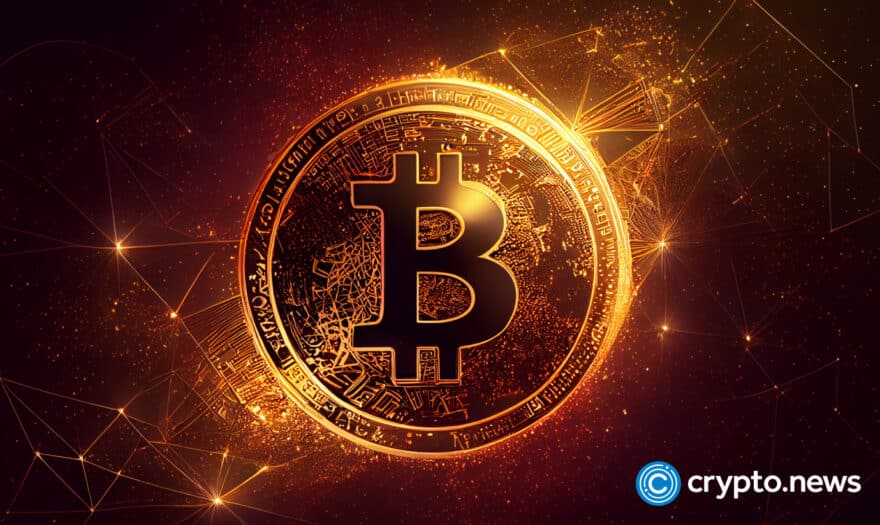The Ballot Regarding Bitcoin’s Future has Begun

SegWit or Unlimited? The miners will proceed to vote on how to scale Bitcoin. Everything depends on the decision of the mining pools. If no solution wins, Bitcoin will remain unchanged.
You may not have noticed, but Bitcoin is underway with the most public election ever conducted in history. It is Segregated Witness (SegWit) versus Bitcoin Unlimited, or simply put; how should Bitcoin increase its capacity? Should it take a little increase with a soft fork and then pave the way for off-chain solutions, or should it just let the miners decide about the block size?
On social media, both solutions competed for some time for the acceptance from the community. In fact, they are subject to heated discussions, causing censorship on several social media channels and creating a deep gap between two parts of the community.
Now the moment has come when the miners are called to make a choice. Maybe a final choice that will put this miserable debate to rest. In every block, the miners find they can leave a short message. This message is their ballot, and it is publicly stored in the blockchain for eternity.
Currently about 17.5 percent of the vote is for SegWit and 11 percent for Unlimited. Since both need a lot more votes to be put into motion, the vote is far from being finished yet. Let us have a look at the two options and their supporters.
SegWit; using a Soft Fork to Increase Capacity
SegWit is Bitcoin Core’s solution to immediately increasing the capacity of the Blockchain. This solution creates a new transaction format that segregates the signature from the main part of the transactions. So the signature does not count for the block size; if everyone adopts SegWit, the on-chain capacity of Bitcoin will be 1.7 to 2.0 MB. Besides this, SegWit has several advantages that will be helpful for off-chain scaling by payment channels like the Lightning Network plans.
One of the selling points of SegWit is that it can be done as a ‘soft fork’. This means, only the miners have to update, while nodes are free to update or not to update. The activation of the soft fork follows the standard procedure; 95 percent of the miners have to signal their support on a period of 2,016 blocks (which corresponds roughly to a time period of two weeks.) If one year passes by without any activation, SegWit will go no further and remain unactivated.
A lot of wallet developers and companies have already started to adopt SegWit. While many companies are still working on it, some have already finished the implementation and are waiting eagerly for the activation.
On November 15, the vote was opened. Right now SegWit has close to 20 percent support with the mining pools BitClub, BTC China, Slush, and ckpool. BitFury announced its support but is not voting as of yet. These pools together represent around 30 percent of the Bitcoin network’s hash rate. Their vote comes as no surprise since these pools announced their support for Core’s scaling roadmap some months ago.
Unlimited; letting Miners Decide the Block Size
The competing candidate for scaling Bitcoin is Bitcoin Unlimited. This fork of the Bitcoin Core codebase did remove the block size limit for miners and established the option for non-mining nodes to signal the maximum size of blocks they support and reject blocks exceeding this size. The idea is to let the market find the optimal block size.
After XT and Classic, Bitcoin Unlimited is the third attempt to give miners the choice to vote for a block size increase. In contrast to its predecessors, Unlimited offers a permanent solution by letting the miners instead of the developers decide about the block size.
Developed by a team clearly smaller than Core, Unlimited established itself in the last month as something like a center of a revolution against Core. Unlimited’s most important contribution to Bitcoin by now is xthin blocks, a feature that significantly reduces the bandwidth requirements of nodes. The biggest mining pool globally, BitMain’s Antpool, tested xthin with the developers of Unlimited.
The first official support of miners, however, happened when Roger Ver announced the use of Unlimited with his newly founded mining pool. Shorty after the third Scaling Bitcoin Workshop, Chinese Pool ViaBTC joined Ver’s pool.
With ViaBTC and the pool of Roger Ver’s Bitcoin.com, Unlimited currently commands around 10 percent of the network’s hash rate. Like the votes for SegWit, this is far away from being enough to activate a change.
So it seems like the future path of Bitcoin depends on the decision of the swing pools which have not voted yet. Who are they?
Swing Pools
By far the biggest swing pools are AntPool (~19 percent) – the pool of ASIC-producer Bitmain, and F2Pool (~16 percent), also known as Discus Fish. Without the support of each of these pools, it is not possible to change Bitcoin. Also important are BW.com (~10 percent) and HaoBTC (~5 percent). All these pools are from China and did not vote yes. They are the place where the decision about Bitcoin’s future will take place.
How are they expected to vote? On November 17, in an AMA (Ask Me Anything) on r/btc, ViaBTC’s Haipo Yang said:
“Most pools in China have lost their trust in Core and shifted their attention to Unlimited. I know a couple of pools said in private that they won’t support SegWit and will support Unlimited instead.”
On top of this he said, AntPool, F2Pool, HaoBTC and BW.com told him privately that they will support Unlimited. Later on November 20, Haipo tweeted that Jihan Wu claimed during the birthday party of HaoBTC that he will soon run Bitcoin Unlimited.
Jihan Wu, Bitmain CEO claimed that Bitmain will firmly support BU both in funding and application on haobtc's 2 year anniversary party today
— ViaBTC (@ViaBTC) November 20, 2016
If Haipo Yang speaks the truth, the Chinese miners already have made their decision. But since none of the officially come out with a vote, many people suppose that the Chinese miners are playing politics. They know about their influence and want to achieve the maximum for their vote.
Is it all Just Politics?
Earlier this year, Chinese miners and a couple of Bitcoin Core developers met in Hong Kong and discussed how to scale Bitcoin. At the end of meeting the miners and developers signed an agreement that the miners will not run consensus-breaking software like Classic or Unlimited and will support SegWit, while the developers will release the code for a block size increasing hard fork.
Today this agreement called the “Hong Kong Consensus”, seems like a waste of paper. The involved Core developers show very little interest in writing code for a hard fork, and Peter Todd, who has been part of the agreement, recently accused the Chinese miners to have broken the agreement by “immediately playing more political games” after the agreement was made.
Whoever broke or did not break the promise, the agreement between miners and developers seems no longer be valid. With the developers rejecting to write the promised code for a hard fork, it seems unlikely the miners will hold their promise and support SegWit.
While the Chinese miners clearly have the power to veto Bitcoin to change by blocking SegWit, it is not clear if they have the power to force Bitcoin to change by supporting Unlimited. Doing so, however, they may create a situation where the developers will respond by changing the mining algorithm, potentially leaving the miners with worthless hardware and doing serious damage to Bitcoin by forking it into two currencies.
If this situation is not resolved, the most likely outcome is that neither SegWit nor Unlimited will be activated. Bitcoin will, in this case, completely refuse to change.












